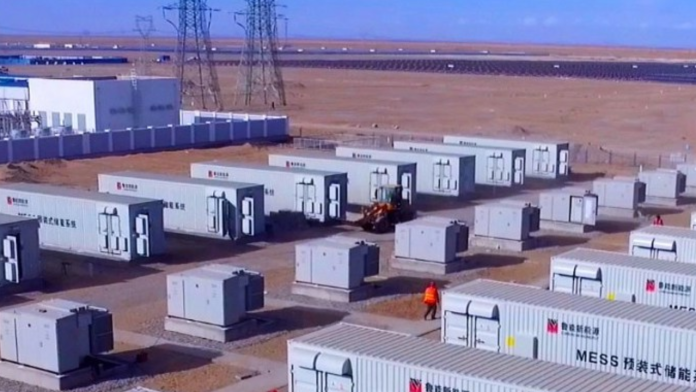Battery Energy Storage Systems (BESS) are technological wonders that shape the way we generate, store, and consume power in today’s dynamic energy landscape. At its core, BESS is a smart energy storage solution that uses advanced battery technologies to absorb excess energy during periods of low demand and release it when it is most needed.
BESS emerges as a key factor in the transition to sustainable and resilient energy systems, with a primary focus on improving grid stability, seamlessly integrating renewable energy sources, and managing peak demand concerns. The bess battery energy storage systems technology’s dynamic nature emphasizes its relevance as a cornerstone in the global development of a resilient and environmentally aware energy infrastructure.
Advancements in Battery Energy Storage Systems (BESS) Technology
Battery Energy Storage Systems (BESS) are constantly evolving in response to the growing demand for clean, dependable, and efficient energy storage systems. As technology advances, researchers and engineers are looking for new ways to improve BESS’s performance, efficiency, and sustainability. This article examines the anticipated developments in BESS technology.
Battery Chemistry Innovations
Due to their high energy density and relatively long cycle life, lithium-ion batteries have been the workhorse of BESS. However, ongoing research is pushing the boundaries of battery chemistry to investigate alternatives that potentially solve some of the limitations associated with lithium-ion batteries, such as resource availability and safety concerns.
These batteries use solid electrolytes rather than liquid electrolytes, which has advantages including enhanced safety, higher energy density, and even longer cycle life. Sodium, a more abundant element than lithium, is being researched as a possible replacement. The goal of sodium-ion batteries is to provide a cost-effective and long-term solution for energy storage.
Increased Energy Density
Energy density, or how much energy a battery can store in a given space or weight, is a significant aspect of BESS. Higher energy density corresponds to higher storage capacity in a smaller space, making BESS more compact and efficient. Researchers are actively investigating new materials for both anodes and cathodes to boost energy density.
Silicon anodes, for example, have shown potential due to their increased energy storage capacity when compared to standard graphite anodes. Another method for increasing energy density is to use composite materials and Nano structuring processes. These methods increase the surface area available for electrochemical reactions, providing more storage capacity.
Enhancing Longevity and Durability
A battery’s cycle life is the number of charge-discharge cycles it can go through before its performance declines dramatically. Extending BESS cycle life is critical for lowering maintenance costs and guaranteeing long-term economic viability. Innovative electrode designs, such as 3D architectures and tailored nanostructures, attempt to improve electrode durability throughout multiple charge-discharge cycles.
This method helps to increase cycle life and overall battery performance. A focus of research is the selection of materials with inherent durability and resistance to degradation. Manganese-based cathodes, for example, are being investigated for their potential to provide extended cycle life and enhanced stability.
Minimizing Energy Losses
Efficiency, which represents the ratio of output energy to input energy, is a critical statistic in BESS. Battery technology advancements attempt to maximize efficiency by minimizing energy losses during charge and discharge cycles. The development of new electrolytes with increased conductivity and stability contributes to increased battery efficiency.
Solid electrolytes, in particular, have the potential to improve BESS efficiency. Increasing efficiency can be achieved by optimizing production processes such as electrode fabrication and cell assembly. Precision engineering and quality control procedures aid in reducing energy losses and improving overall system performance.
Smart Battery Management Systems
Smart Battery Management Systems (BMS) are critical to the maximum performance and longevity of BESS. To predict energy demand and optimize charging and discharging cycles, machine learning algorithms analyze historical usage trends, weather forecasts, and other pertinent data.
This predictive skill aids in the efficient management of energy. Advanced monitoring systems give real-time data on the charge state, temperature, and other vital parameters. The capacity to diagnose and address faults quickly contributes to BESS’s dependability and safety.
Summary
BESS technology advancements are catapulting the energy storage sector into a new era of efficiency, sustainability, and versatility. As R&D efforts continue, the joint goal is to produce battery systems that not only fulfill the expanding demands of the energy landscape but also contribute to a cleaner, more sustainable future. BESS technology’s dynamic nature emphasizes its relevance as a cornerstone in the global development of a resilient and environmentally aware energy infrastructure.







